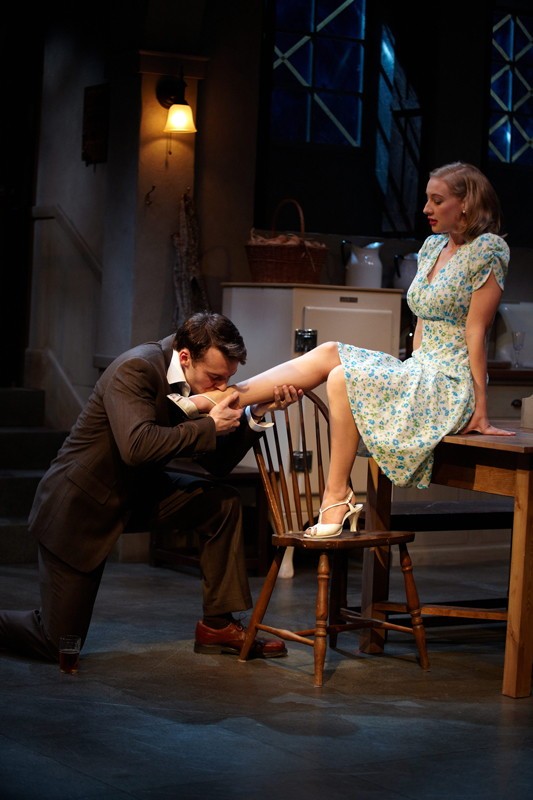The bitterest of battles
Entire cast shines in After Miss Julie
To paraphrase David Mamet, a bard formerly showcased by Winnipeg’s Master Playwright Festival: drama is about people trying to get something, come hell or high water - it’s a contest of wills.
If you accept this, then British playwright Patrick Marber’s After Miss Julie - an adaptation of August Strindberg’s own Miss Julie - could be considered drama undistilled.
At the play’s centre is the bitterest of battles, possibly to the very death.
The combatants are the titular Miss Julie (Bethany Jillard) and her rich father’s chaffeur, John (Peter Mooney). They desire and detest each other almost equally - but not as much as they detest themselves.
There’s also the question of whether third party Christine (Sarah Constible) will get too close to the middle.
It’s 1945 Britain, and the Labour Party has won a landslide victory. However, if anyone thinks things are going to be different now, they haven’t tasted John’s cynicism.
Miss Julie doesn’t feel too hopeful, either. She knows people like John, for whom her father did a favour years ago; John owes him his very position.
More importantly, Julie’s got something on John. Turns out he’s got something on her, too. Then they both get something more on each other, while Christine - John’s fiancée - can only watch in detached horror.
The revelations continue, escalating the fight straight to the finish.
Why are these characters driven to wound and dominate each other so? Their duel isn’t so much about power as it is about powerlessness.
Both are imprisoned by social cages - Miss Julie doubly by both class and sex - and they take out their impotence on one another.
Yet maybe each can offer a way out. Too bad they know each other too well; neither can hide, and when they lash out, it’s an attempt to shatter the mirror the other bears. These characters have deep shames.
The entire cast shines.
At first, Mooney’s accent wears him instead, but the strength of his underlying performance ultimately takes over. Jillard simply owns such lines as, “I think I’m a lush.”
However, it’s Constible who steals the show.
If acting is truly living onstage - albeit under imaginary circumstances - then Constible is one of the most convincing actors I can remember; she has nary a moment that doesn’t feel utterly natural and spontaneous.
The Warehouse has been the source of MTC’s true artistic pulse for years, and productions like After Miss Julie only testify to that.
Published in Volume 65, Number 18 of The Uniter (February 3, 2011)








